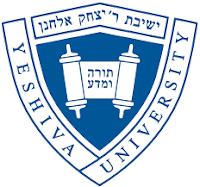Yeshiva University fights for its life
Are Jewish Colleges Illegal in New York City?
YU, as it is known in the Modern Orthodox world, claimed its religious status as a defense against the lawsuit under the New York City Human Rights Law, it lost at trial. As McLaughlin notes in National Review:
Judge Kotler ruled that Yeshiva is not really a religious, rather than an educational, institution. She relied on the fact that the university had changed its charter in 1967 to declare an educational primary purpose and that it now offers degrees in many secular subjects. She also decided that the university’s religious argument was compromised because some faculty dissented from the decision and because the university since the 1990s had permitted such groups in its schools of law and medicine. . . .
This is, on both grounds, an unreasonably crabbed view of what it means to be a religious believer or a religious institution. While Yeshiva trains rabbis, it also trains a great many other students who will have to earn their living in the wider world—as businesspeople, doctors, dentists, lawyers, scientists, social workers, teachers, and all manner of other occupations. No religion can long survive if it is permitted to train only ministers in the faith. The university’s greater willingness to compromise the purity of its religious message in its law and medical schools is, likewise, a real-world acknowledgement that graduate and professional schools aren’t colleges: they cater to students who have reached full adulthood and may, in many cases, be married people in their 30s with significant work experience who have likely already set themselves on their faith journey.
As for the fact that some faculty disagreed with the decision, one must ask if the judge has ever met any university faculty, any religious believers, or any Jews. If religious authorities may require their believers to follow only those doctrines that nobody disputes, that would swiftly be the end of all forms of religious authority.
